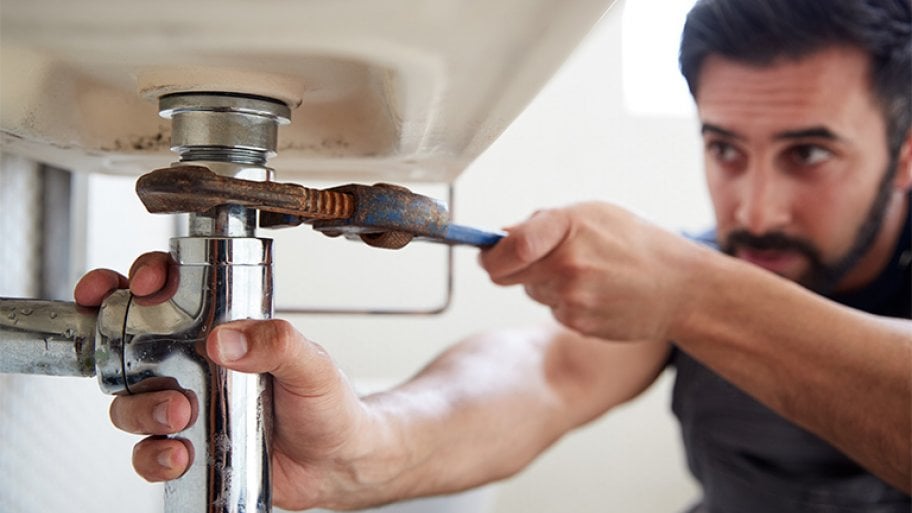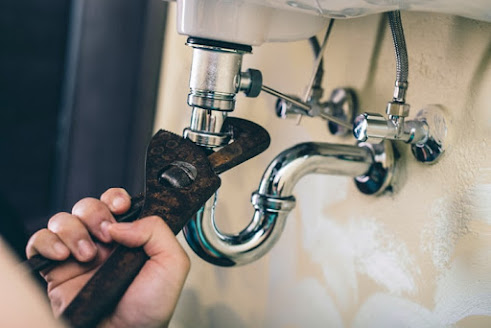Have you been in search of guidance concerning Why is My Home Making Strange Plumbing Noises?

To detect loud plumbing, it is very important to determine very first whether the unwanted noises occur on the system's inlet side-in various other words, when water is turned on-or on the drainpipe side. Noises on the inlet side have actually varied reasons: excessive water stress, worn shutoff and faucet components, incorrectly attached pumps or other devices, improperly positioned pipe bolts, and plumbing runs including way too many tight bends or various other limitations. Noises on the drainpipe side typically originate from bad area or, just like some inlet side sound, a design containing limited bends.
Hissing
Hissing noise that happens when a faucet is opened somewhat generally signals too much water pressure. Consult your regional water company if you presume this problem; it will certainly be able to tell you the water stress in your area and also can install a pressurereducing shutoff on the incoming water system pipe if needed.
Various Other Inlet Side Noises
Creaking, squealing, scratching, snapping, and also tapping generally are caused by the growth or tightening of pipelines, generally copper ones supplying warm water. The audios occur as the pipes slide against loose bolts or strike neighboring house framework. You can often identify the area of the problem if the pipes are revealed; simply follow the noise when the pipes are making sounds. Most likely you will uncover a loosened pipe hanger or a location where pipelines lie so near to flooring joists or various other framing pieces that they clatter versus them. Affixing foam pipe insulation around the pipes at the point of call need to remedy the issue. Make certain bands and hangers are safe and also provide adequate support. Where feasible, pipeline bolts should be attached to enormous architectural components such as structure walls as opposed to to mounting; doing so lessens the transmission of vibrations from plumbing to surfaces that can enhance as well as move them. If affixing bolts to framework is unavoidable, wrap pipes with insulation or other durable product where they call bolts, and also sandwich completions of brand-new bolts between rubber washers when installing them.
Correcting plumbing runs that struggle with flow-restricting tight or various bends is a last resource that should be undertaken only after speaking with an experienced plumbing professional. Sadly, this circumstance is fairly common in older houses that might not have actually been developed with interior plumbing or that have seen numerous remodels, specifically by novices.
Chattering or Screeching
Extreme chattering or shrilling that happens when a valve or tap is activated, and that typically disappears when the installation is opened fully, signals loose or malfunctioning inner parts. The solution is to change the shutoff or tap with a new one.
Pumps and appliances such as cleaning equipments and also dishwashing machines can transfer motor sound to pipelines if they are incorrectly linked. Link such things to plumbing with plastic or rubber hoses-never inflexible pipe-to isolate them.
Drainpipe Noise
On the drain side of plumbing, the principal goals are to eliminate surfaces that can be struck by dropping or rushing water and to insulate pipelines to include unavoidable sounds.
In brand-new building, bathtubs, shower stalls, commodes, as well as wallmounted sinks and containers must be set on or against resilient underlayments to lower the transmission of noise through them. Water-saving commodes as well as faucets are much less noisy than standard models; mount them rather than older types even if codes in your location still permit using older components.
Drainpipes that do not run up and down to the cellar or that branch into straight pipe runs sustained at flooring joists or various other framing existing especially troublesome sound problems. Such pipelines are large sufficient to radiate considerable resonance; they also lug significant quantities of water, which makes the scenario worse. In brand-new building, define cast-iron soil pipelines (the big pipelines that drain commodes) if you can afford them. Their enormity includes a lot of the noise made by water travelling through them. Likewise, stay clear of directing drains in walls shown to bedrooms as well as rooms where individuals collect. Walls having drainpipes must be soundproofed as was described earlier, making use of double panels of sound-insulating fiber board and wallboard. Pipes themselves can be covered with special fiberglass insulation produced the purpose; such pipes have a resistant vinyl skin (often having lead). Results are not constantly satisfactory.
Thudding
Thudding noise, usually accompanied by shuddering pipes, when a tap or appliance valve is turned off is a problem called water hammer. The noise as well as resonance are caused by the resounding wave of pressure in the water, which unexpectedly has no place to go. In some cases opening up a valve that discharges water promptly into an area of piping having a restriction, arm joint, or tee fitting can create the very same condition.
Water hammer can typically be healed by installing fittings called air chambers or shock absorbers in the plumbing to which the trouble valves or faucets are attached. These tools allow the shock wave produced by the halted circulation of water to dissipate in the air they include, which (unlike water) is compressible.
Older plumbing systems might have short upright areas of capped pipe behind walls on tap competes the very same purpose; these can eventually fill with water, minimizing or ruining their performance. The treatment is to drain pipes the water supply completely by shutting off the main supply of water valve and also opening all faucets. Then open up the major supply shutoff and close the faucets one by one, beginning with the tap nearest the shutoff and ending with the one farthest away.
Pipe Down! What to Do About Noisy Water Pipes
Banging
Does it sound like someone's hitting your pipes with a hammer every time you run water? The issue could be a phenomenon called water hammer, which happens when a water valve closes suddenly. You'll often hear it when your washing machine stops filling, for example. The momentum and pressure from the water flowing toward the valve create the shockwave that causes the banging noise when the valve closes suddenly. It might not seem like a big deal, but water hammer can cause damage to your pipes, including leaks and joint damage.
One way to ease water hammer is by installing water hammer arrestors. Your plumber can install them near major valves to help cushion the shock of the water when it suddenly stops or changes direction. You might also need to reduce the water pressure coming into your home with the pressure-reducing valve.
Gurgling
Gurgling sounds typically come from drainpipes. This sound happens when the water can't drain properly, usually when there's a clog in the water pipes. Drain clogs often happen due to hair, grease, soap scum or objects that fall down the drain. They can happen suddenly or build up slowly over time.
You can sometimes clear a clogged drainpipe with a plunger to help force the clog through the pipe. A plumbing snake or an auger can also help break up tough clogs. A common plumbing myth is that chemical drain cleaners are safe and effective, but they often don't work and contain harsh chemicals that can hurt you and your plumbing. If you can't remove the clog with a plunger or snake, it's best to call a plumber to help.
Rattling
Water travels through your pipes with lots of pressure, so the pipes are bound to move a little. Pipes should be secured well to keep them from moving too much when water runs through them. If they're not properly fastened or the fasteners come loose, you might hear them rattling when you run water.
Resecuring the pipes can cut down on the rattling noise and prevent damage to the joints of the water pipes. However, many pipes run behind walls where you can't easily access them. A plumber can help determine if loose fasteners are the cause of the rattling and resecure them if necessary.
Humming
If your pipes sound like they're humming, it's likely a water pressure issue. When the water pressure is high, it can cause the water pipes to vibrate and create a humming sound. High water pressure is more common if you have a well for your water, but it can happen with municipal water as well. High water pressure can damage your plumbing and cause leaks.
If you have a well, check the pressure to ensure it's below 55 pounds per square inch. A plumber can test the pressure for you and help adjust the issue if you're not sure how to do it yourself. If you're connected to the municipal water source, your home likely has a pressure-reducing valve near where the water enters your home. You can adjust the screw in the valve to decrease the pressure, but be careful not to lower it too much.
Squeaking
Squeaking or squealing is another common sound you'll hear in your water pipes. This often happens if small components within the plumbing, such as washers or aerators, become loose, dirty or damaged. When this is the cause, the squeaking sound is usually confined to a certain fixture or area of plumbing. Replaced or repairing the part should solve the noise.
If you can hear the squealing sound everywhere in your home, it could be an issue with water pressure. Buildup in the pipes narrows the space for the water, which can cause squealing as the water tries to squeeze through the pipes. Wear and tear on the plumbing system can also cause whistling or squeaking. These situations typically require a professional plumber to diagnose and repair.
https://www.homeserve.com/en-us/blog/home-improvement/water-pipes-making-noise/

I'm just very taken with Why Do My Plumbing Pipes Make A Knocking Noise and I'm hoping you appreciated the piece. For those who enjoyed reading our blog posting kindly be sure to pass it around. Thank you so much for your time invested reading it.
Additional Resources
Comments on “Leave it to the Professionals: Common Appliance Troubles That Need a Plumber's Attention”